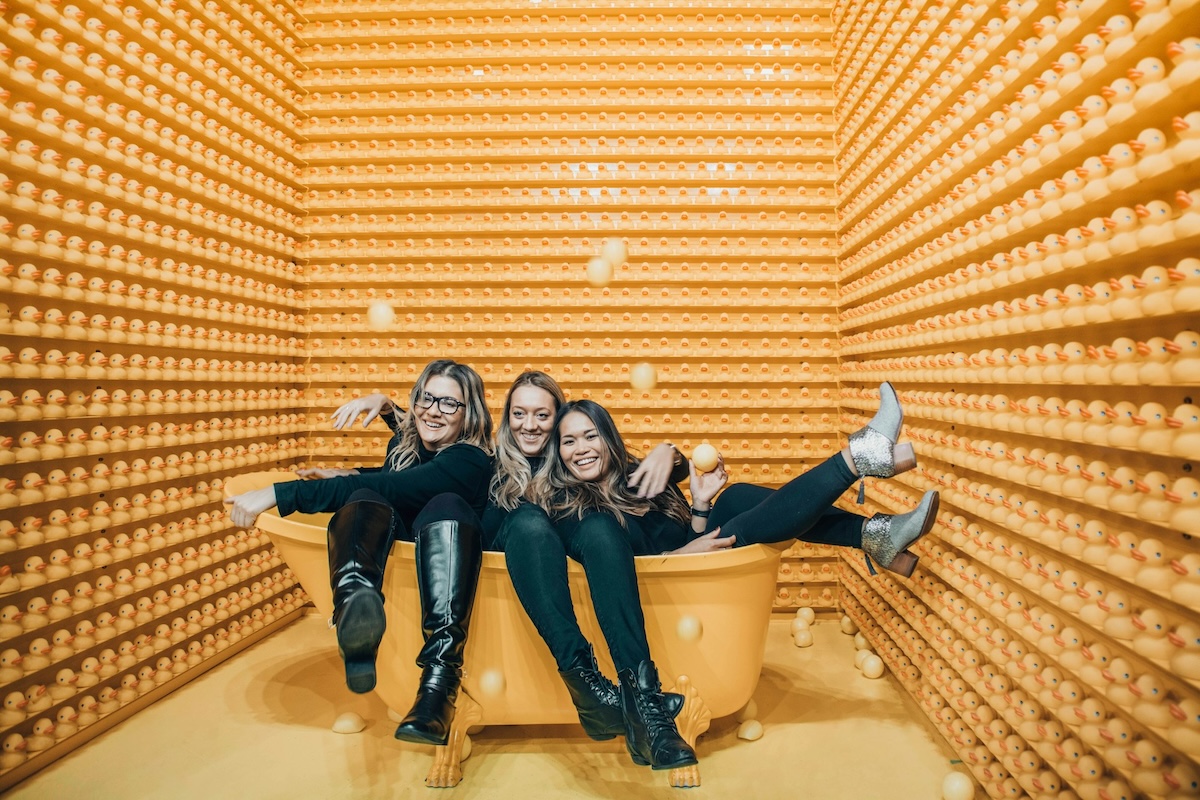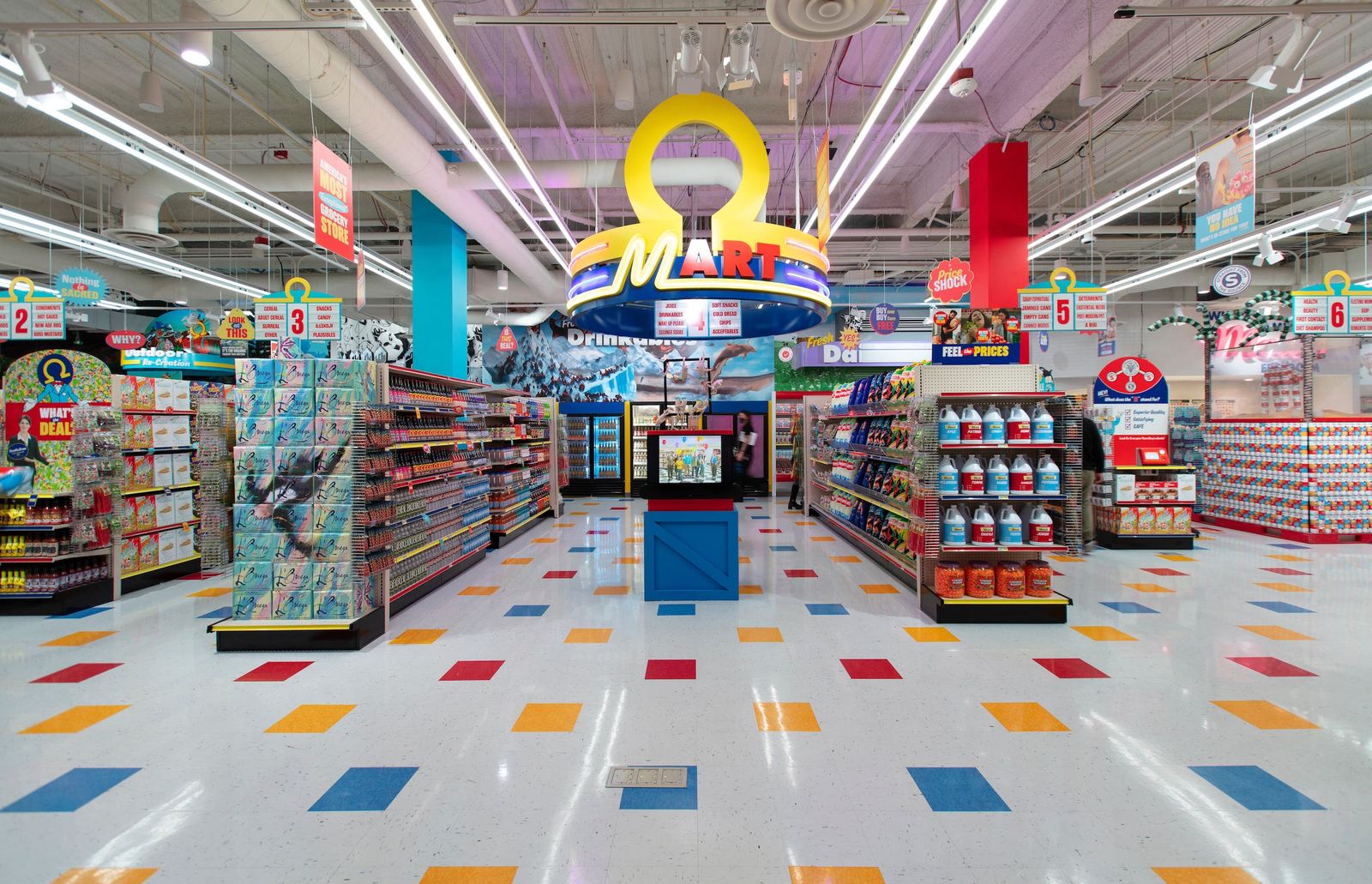Skift Take
Selecting the venue for your next event is not as straightforward as it used to be.
RFP, security breaches, in-house AV.
I know your head is already hurting.
Yet, making the right choice for the hotel that will host your guests has many crucial implications.
Events are not enough anymore. Attendees want experiences and your event venue will significantly impact the delivery of a memorable and transformational experience.
Technology in Hotel Rooms: More Than TVs and Desk Phones
Technology plays a key part in delivering a better hotel experience. Why?
- Our homes are increasingly more tech-friendly. We expect the same level of technology at hotels.
- Technology can make things faster. As events are very limited in time, speeding processes up is instrumental to a better experience.
These are just some of the intrinsic reasons why event professionals need to keep an eye on the emerging technology used in the hotel industry.
Being aware of what’s new can drive you to a better site selection and—in turn—to a better event.
Enough with the chit-chat. Let’s looks at the most exciting hospitality technology trends that can help boost the performance of your event.
Hotel Tech Trends for Smart Check-in/Check-out

Without a doubt one of the most impactful steps of the event experience is check-in. We have stressed many times how long lines at your large show do not usually go over well with your attendees.
If you add a long hotel check-in to the picture, well, that’s an ugly picture.
Waiting in line in hotels is never a pleasant thing. Sure, you can work with some properties to have dedicated check-in desks for your attendees. That is always welcome.
But what if that is not possible or too expensive?
Choose properties that have invested in smart check-in technology. Want examples of this incredibly powerful technology used in the hotel industry? We’ve got you covered.
Intercontinental (IHG) partnered with WeChat to deliver check-in via facial recognition in Shanghai. You can reserve, obtain your key, use your phone as a key or order room service from the chat.
This application becomes particularly interesting when you consider how WeChat can be used as a promotional and engagement tool for your event.
Imagine having a group chat for attendees on the same platform where they interact with the hotel.
Pretty powerful.
Facial recognition is definitely at the center of faster check-in when it comes to hospitality technology trends, and it’s an event trend we have discussed many times. However, smartphones are still the tool of choice to make check-in faster.
Such is the case for the Mi-pad hotel in New Zealand. Wary of the latest hacking scares, this hotel invested heavily in its app as the remote to control the check-in and in-room experience. Guests not only use the app as a room key, but they can also control the lights, room temperature, set up a “do not disturb” or request room cleaning.
Very impressive.
Tech-Savvy Hotels Take Care of Attendees’ Phone Batteries
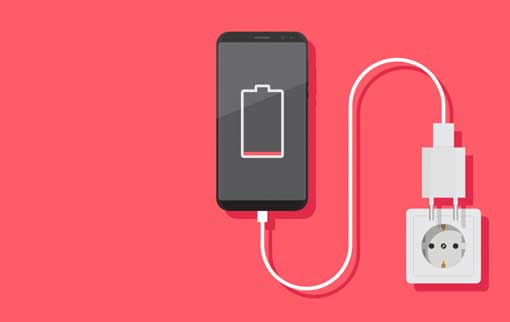
If you are on the go, charging your phone is always an issue you have to confront. When you attend events this becomes the case even more.
Hotels can do their part and some hotel chains are jumping on the opportunity to charge guests’ phones. Yes, because it is an opportunity worth realizing.
IHG and Grand Hyatt have both invested in Chargifi, a wireless solution to charge smartphones. The opportunities come from the in-app integration, which allows push notifications such as alerts regarding proximity to a charging station.
This type of integration could be ported to a (flexible) event app, adding many layers of relevance to the app. As we enter maturity for the event app market, developers and event planners investing in event apps should be on the lookout for this type of functionality.
An alternative you should look for when inspecting your potential event venues are charging stations or charging tables, as seen in this example from the Hyatt Lodge .
The more a hotel has invested in these charging stations, the better for your attendees. You can always source charging stations for your event and there are some pretty cool, rentable solutions out there. If the hotel does offer battery charging stations, you don’t have to pay for it.
If you work with…
- Technology conferences or trade shows
- Pharma conferences and trade shows
- Luxury conferences and trade shows
…then you are certainly dealing with an audience that needs to constantly use their smart device during an event. Ask your hotel whether they have implemented battery charging stations or look out for them at your next site inspection.
Speaking of which…
Hotel Inspection Virtual Reality (VR) Technology Trends
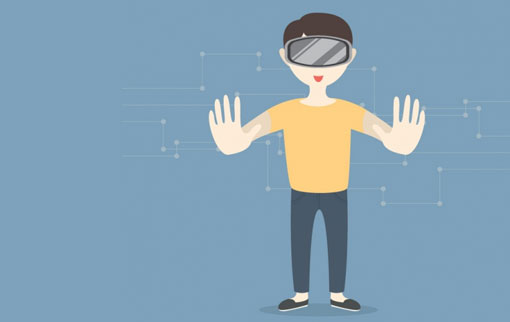
I hear you. There is no substitute for live inspection when selecting a property for your event. Period.
Yet when you are evaluating 5/10/15/20 alternatives, I am sure you’d welcome something better than a cranky website or a sad PDF. This is where virtual reality fits in the event venue selection process.
Virtual venue inspections are becoming the norm, rather than the exception. Being able to explore rooms by way of 360-degree video or imagery is in increasing demand by event professionals.
Why?
It saves a great deal of time and it can help to make a better decision when skimming venues.
Some hotels have invested strongly in 360-degree pictures with overlays from actual events. This is a clear case where virtual reality is becoming a go-to technology for the hotel industry. Seeing an event in action, applying different seating options, interacting with the environment to picture how an event would look like brings an incredible amount of efficiencies to event planners. And boy, do we love efficiencies!
Shangri-La has been at the forefront of the VR venue site inspection with the first property dating as early as 2015.
You can check out the power of immersive video for site inspection for Shangri-La destinations in this 360-degree video:
The virtual site inspection process does not have to be fancy. Yes, VR is cool, but just a phone or 360-degree camera will do. See what the Sheraton Frankfurt Hotel and Conference center did with very approachable technology and with a human touch that really helps.
Holograms: The Future of Hotel Tech is (Finally) Here

For years, holograms have been at the top of all lists of predictions for the event industry. Yet they have never actually gained speed, mostly because of their expensive implementation and hardware requirements.
If you understand a little about technology, you’d agree that cost and hardware requirements are very temporary factors.
Can you imagine video calling from planes 15 years ago?
The applications of holograms at hotels range from speeding up check-ins with holographic concierges to augmenting the experience of guests with custom activations.
Once again the obvious benefit here is to rely on the hotel technology to avoid investing in a budget to rent the still somewhat pricey technology.
Enough talk—let’s look at some examples:
The experiential welcome of SLS hotel in Las Vegas gives guests an incredible encounter at the Center Bar. While this is technically not a hologram, it is a stunning LED that gives a holographic experience. If you are geek enough and you want to know how it works, Make: Magazine has a great write up.
NH hotel group has been at the forefront of offering hologram projection as part of their futuristic meeting rooms.
The benefit here is immediate with the ability to pre-record sessions from speakers that are not able to travel.
See it in action:
Holographic concierges are popping up around airports and hotels around the world. There seems to be some general consensus about them: they are creepy. It appears most people still prefer an app or a kiosk to get information. Yet if your hotel offers it, it is still less awkward than talking to a robot.
A holographic concierge can give your event attendees a custom welcome and advise them about event specific information. See it in action (warning: I jumped off my chair at second 00:09):
https://www.youtube.com/watch?v=X_QjqeamB24
Let’s be honest though, talking to a machine is not as bad as it used to be. In fact…
Voice Tech Tops the Event Trends List for Hotels

Voice was the #1 event trend of 2018 according to our event trends report. Hotel chains are jumping on voice as a quick way to provide guests with information, while saving big bucks on human staff.
There is no hype in this equation. Every hotel will have the same questions asked over and over again:
- What’s the wifi password?
- At what time is breakfast?
- Where is the spa/gym?
- What restaurants are in the area?
- What can I do tonight?
- What local attractions should I visit?
- Where can I find the best espresso in town? (OK that’s not an FAQ, it’s what I usually ask.)
Voice is a great solution to avoid unnecessary calls to the busy front or hotel guest services desk. Of course, if water runs out or the guests next door are too noisy, there’s nothing Alexa, Cortana, Siri or Google Assistant can do about it, but they can surely alert staff.
This is why Amazon launched Alexa for Hospitality. Great news for event professionals.
While the service is now focused on hotel essentials such as:
“Alexa, order room service”
“Alexa, send up two more towels”
“Alexa, call the front desk”
“Alexa, help me check out”
We can foresee functionality on the lines of:
“Alexa, where is the keynote room?”
“Alexa, at what time is breakfast served at the event?”
“Alexa, when is the social program starting?”
When the service was launched back in June, Amazon launched a partnership with five Marriott properties. Since then, properties in Las Vegas such as the Wynn have implemented Alexa successfully. See it in action:
Hotel Mobile Apps Have Become an Essential
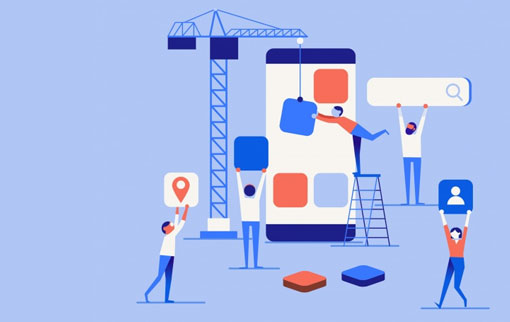
The hospitality industry loves apps. And the love is reciprocal.
Event, restaurant and hotel apps are very popular. And yes, it is a pain in the neck to download yet another app, but it does help when the property hosting the event uses the app cleverly.
Whether it is connecting to the wifi or, as we anticipated earlier, using your smart device as a room key, apps are becoming part of the technology stack at forward-thinking hotels.
Apps can help event professionals disseminate information to attendees, especially when budget does not support a standalone app investment. Think small meetings where there is simply not enough time or attendees to implement a full app, yet a particularly demanding or tech-friendly audience demands digital tools to access event information.
But that’s not all.
Apps can be essential companions for event professionals who want to access all the event vitals on the go. Hotel apps become functional portals for event planners, allowing them to keep everything under control and, yes, we love that.
Such is the case of Radisson Blu’s One Touch App, designed for both attendees and event planners.
The app allows to quickly consult schedule, speakers, exhibitors, maps and more. Why purchase a standalone app when you can have it as part of your venue experience? Very clever:
https://www.youtube.com/watch?time_continue=32&v=-4rkrVo6QZo
Smart Hospitality Enables Device Streaming

Just head to Google and search for ‘hotel cast to device.’ You will find many articles aimed at dodging the expensive on-demand hotel entertainment in favor of streaming our content to the screen in the room.
Such a simple need, so many obstacles. Security, licenses, obsolete technology. You name it.
Yet the need to cast to our room’s TV remains, and it is time for hotels to do something about it.
A business traveler attending events may be particularly enthusiastic to have such a feature in their room.
Why?
Here are some potential scenarios:
- A speaker wants to rehearse their presentation at an external screen
- An exhibitor wants to finalize their presentation
- An attendee wants to have a meeting with their colleagues back at the office on a large screen
We all agree these are nice-to-have’s, but so is 80% of the action happening at an event. This is where details have the power to really impact the attendee experience. A good meeting property selection for your group has to take into consideration small additions that show that you care.
Solutions are out there to implement a fantastic business and consumer guest experience. Take Keypr for example. It’s a platform that on top of offering apps, in-room tablets, and keyless entry, now also offers a TV module that acts like a Chromecast and works with all Chromecast compatible apps.
On the simpler side, solutions such as Roomcast quickly allow guests to stream their favorite content.
Solutions are out there. It’s our task during site inspection to take note as to whether or not the hotel guest room has such features. Our guests will appreciate this effort.
Chatbots: The Future of Hotel Technology Trends

We talked about holograms, apps, and voice, which are all great tools to respond to quick and recurring needs hotel guests may have. Chatbots are yet another tool—and quite a powerful one—to handle all of the above.
Chatbots, put very simply, reply to guest inquiries courtesy of pre-populated questions. They also have the ability to learn, thanks to the wonders of Artificial Intelligence (AI). Furthermore, they can dial up a live person if the answer is not on file.
Chatbots give incredible insights to properties and represent the future of hotel technology trends. Many hotels are jumping on board.
But why does it matter for events?
Chatbots are essentially an easier way to deliver the same information that audio or apps can deliver. By easier, we mean with a better user experience and in a timely fashion.
Once again, the need is the same: asking questions about the event essentials; location of a session, directions, schedule, local area information; these are questions very vivid and pressing in the attendee’s mind.
Some notable examples are the very Vegas-y Rose, down at The Cosmopolitan:
You can see it in action at the Marina Bay Sands in Singapore, powered by AiChat:
It is immediately clear how convenient this exchange is here, especially when, like in the above case, it happens on Facebook.
Digital Signage: A Hotel Tech Trend That Truly Delivers
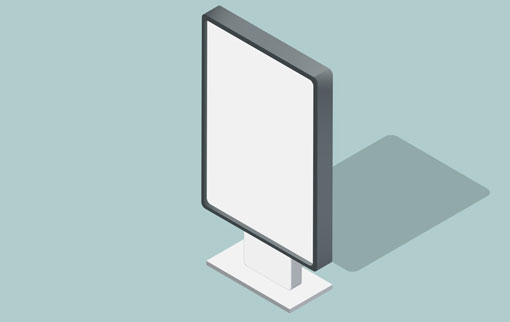
The recurring problem our guests face when attending an event is the lack of information and the constant need for directions. As we’ve seen, hotels can play a big part in helping deliver this information in a timely fashion.
It is the case of very large properties where digital signage can be used strategically to enhance your event brand presence and to offer smart wayfinding to where the action is.
There is also an engagement element with some smart kiosks having the ability to send and share media. See this example from eyefactive in action:
What about room-specific schedules? We can definitely do without the waste of paper. Solutions like what Janus implemented for Sheraton are exactly what you should be looking for in a property that makes information retrieval easy.
Security Technology is Essential in the Hospitality Industry

What we have discussed up until now can make your event. What can break it is a security breach. Technology increases the risk of digital fraud, identity theft and the likes.
We have all read the recent and less-recent news of security breaches in major hotel chains around the world. At this stage, you may ask yourself:
What does this have to do with my event?
Well, if your attendees were impacted by a hotel breach, it’s not a good thing. There may be legal implications, and to say the least, your event brand will not get a positive kick out of it. Quite the opposite.
As event professionals, we need to add security to our venue or hotel checklist. It is part of your job to ask for certifications, confirm security protocols, and ensure measures are in place to prevent breaches. We cannot leave our attendees exposed to the risks of accessing an unsecured network and sharing their details with an organization that does not take security seriously.
In any case, it is always good thinking to protect your event by clearly spelling out in your terms and conditions what happens in the case of breaches.
Your to-do list is as follows:
- Contact a security expert to develop a process to check your venue security.
- Ask your selected venues to share their security certifications and measures in place to prevent identity theft.
- Avoid properties that have a history of security breaches until there are clear programs in place to avoid similar scenarios in the future.
IN CONCLUSION
The event industry is obsessed with delivering memorable experiences. This incredibly challenging objective forces us to pay attention to all elements of our attendees’ event journey.
Hotels are a crucial part of this journey. A smart hotel that is tech-friendly can help you to wow your guests and make the planning process easier, in some cases saving you big bucks.
Savvy event professionals carefully select event venues based on location, amenities, destination, F&B options, room block discounts and, yes, technology.
A solid technology stack supports the mission of event professionals to deliver mesmerizing experiences by providing timely information and by offering smaller-scale meetings the technology they cannot afford.
Keep an eye out for these ten trends in 2019 and let us know if we missed any major technology trend in the hospitality industry. Comments are open!



